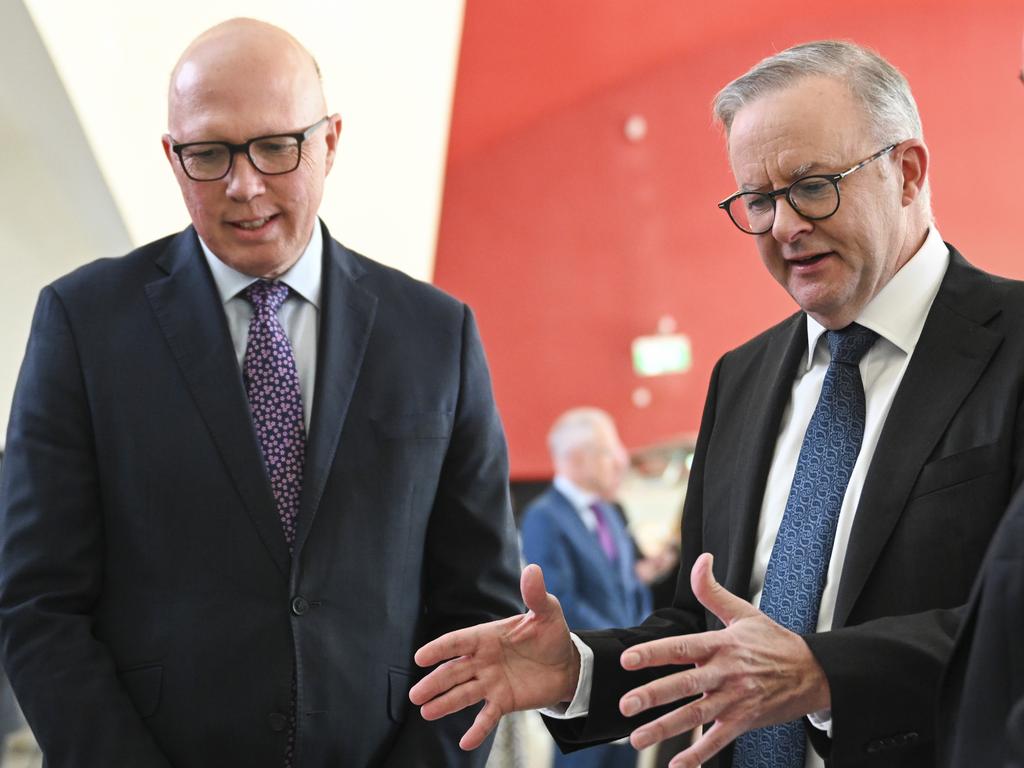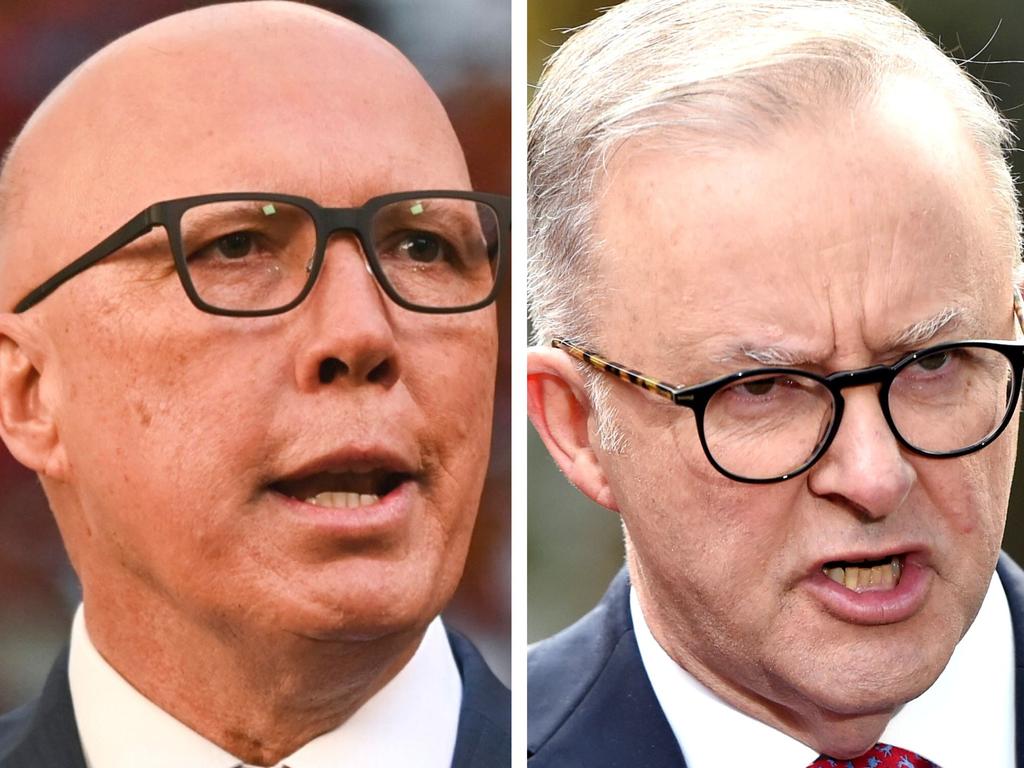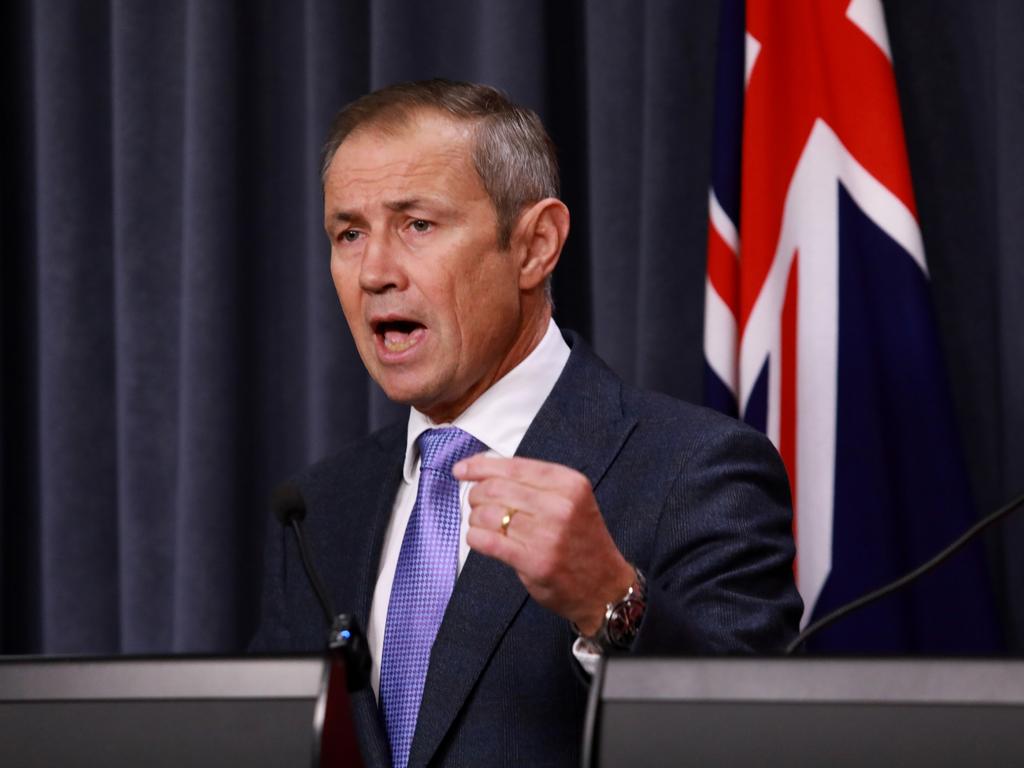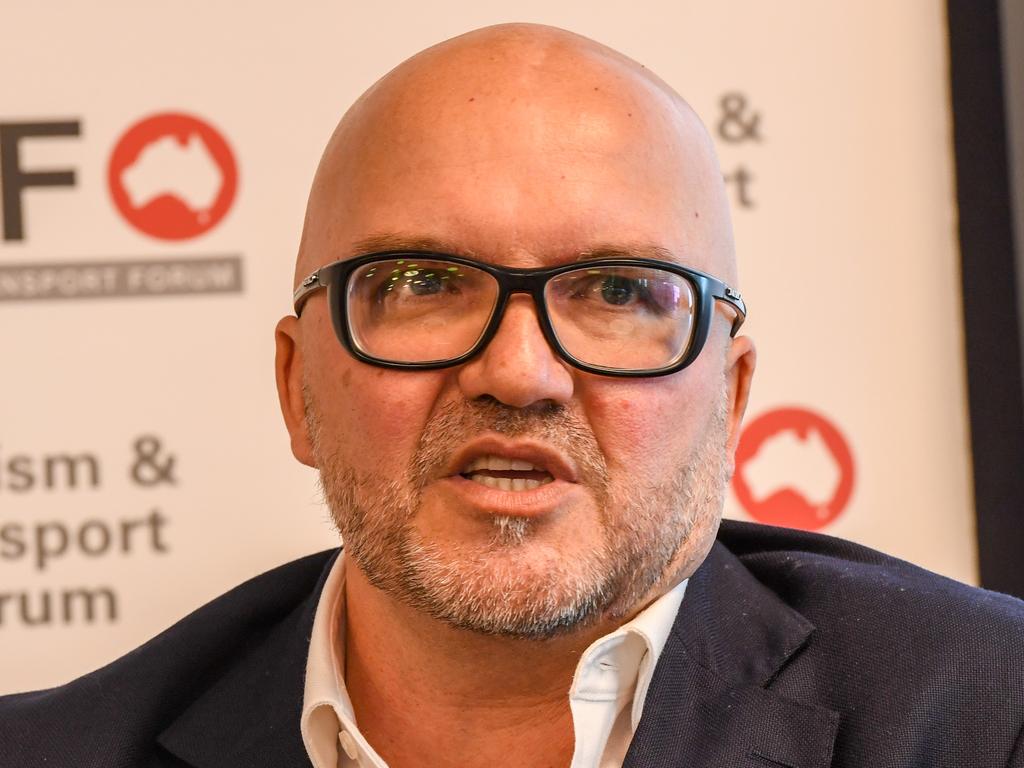Stand delivers as Liberals’ opposition to Indigenous voice to parliament pays off
The success of the No campaign in the west has some Liberals wondering if the party’s miserable fortunes may finally be about to turn.
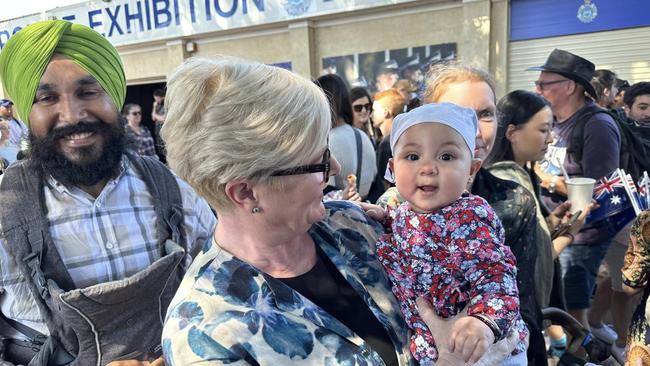
There has been no sadder place in the world these past few years than the Liberal Party stand at the Perth Royal Show.
Perched opposite the Police Pavilion and just a few metres down from the Agriculture Hall of Fame, the pop-up tent has long been a forlorn sight at the annual show as the party suffered through humiliating state and federal election defeats.
This year, however, the MPs, staffers and volunteers manning the stand have noticed a distinct change in mood. More and more people have approached the stand this week – grabbing the Liberal-branded show bags stuffed with notebooks, fridge magnets and a mini Australian flag – than have done so for years.
Amid petting the farm animals, watching the woodchopping competitions and perusing overpriced show bags, punters from across the Perth metropolitan area have taken time to stop in and engage with the party.
“It’s fair to say that the level of engagement and the number of people voluntarily coming up and wanting to talk with us is vastly different to 12 months ago,” says one Liberal staffer who has been manning the stand.
The key difference, they say, is the voice.
This year, in addition to the Liberal Party bunting, the stand features corflutes and posters urging punters to vote No “to the voice of division”.
The Liberal Party experience in WA in recent years has been far scarier than any Ghost Train or rollercoaster over at the show’s Sideshow Alley. The humiliation of being reduced to just two lower house seats in the historic 2021 state election rout was followed last year by a wipeout of its federal seats, with the party retaining only one of its seats in the Perth metropolitan area.
But numerous polls have consistently shown support for the voice in WA is among the lowest anywhere in the country, pointing towards a rare and much-needed political win for the Liberals in the west.
Liberal senator Michaelia Cash has been one of the opposition’s loudest voices on the referendum. She told The Australian the “overwhelming feedback” from the Royal Show tent was praise for the party’s stance on the referendum.
“I’ve spent a lot of time talking directly with Western Australians about the referendum and it is clear to me that they want the best for Indigenous Australians, but many have failed to be convinced the voice is the best way to go about it,” she said.
“They don’t trust the Prime Minister because of the lack of detail about the voice. They tell me they don’t want to put something permanently in our Constitution when they are not being told the details of how it will operate.”
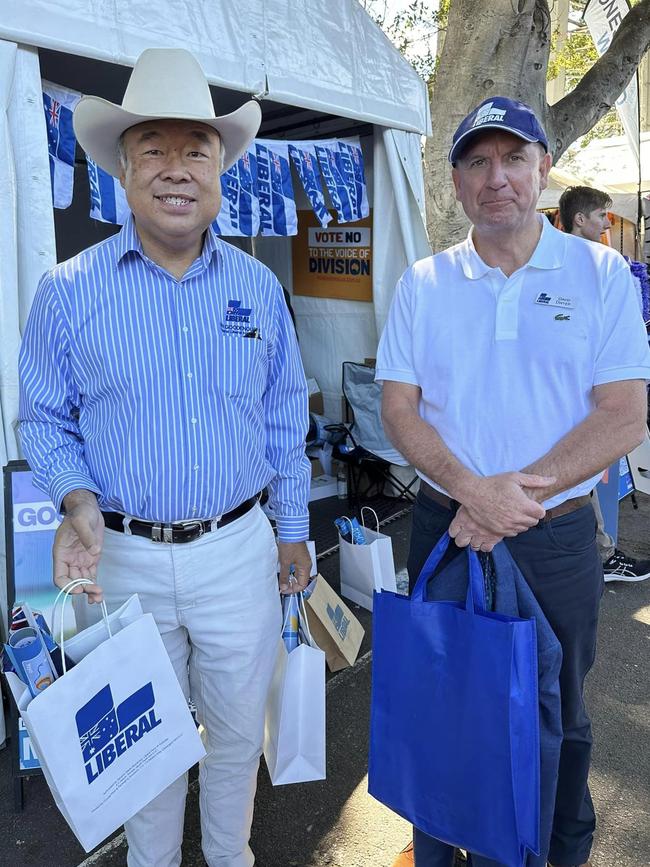
The Claremont showgrounds, where the Royal Show is held every September school holidays, sits smack bang in the middle of the blue-chip western suburbs electorate of Curtin.
The seat recorded the highest yes vote of any WA electorate during the gay marriage plebiscite and elected teal candidate Kate Chaney at last year’s federal election, but according to recent polling from the No campaign is on track to reject the voice by almost two to one.
There is also hope among the Liberals that their opposition to the voice can help open the door to voters in mortgage-belt seats such as Burt and Brand.
Not all in the party are so encouraged by the inroads made on the voice. Moderates who believe the party erred both morally and politically in choosing to oppose the referendum believe the anecdotal increase in support on the ground in the west is a false dawn.
They say the party has simply attracted the fringe types who have previously been drawn to One Nation or Clive Palmer’s United Australia Party – voters who can make a lot of noise but who typically don’t stick – while further alienating the moderate middle who have gravitated to Labor in recent elections.
They say it is telling that, even as support for the voice has fallen, Mr Dutton’s popularity hasn’t improved and only a little bit of skin has been taken off Albanese’s polling figures.
While the referendum’s defeat would be most meaningful for the party’s federal MPs, it could also have implications at a state level.
The looming failure of the referendum in WA has the fingerprints of Premier Roger Cook all over it, due to the short-lived Aboriginal Cultural Heritage Act that was introduced and then swiftly repealed amid a widespread public backlash.
Mr Cook has been actively campaigning for the voice in the lead-up to October 14. He has done so without any support from his predecessor Mark McGowan, who has studiously avoided lending any of his still-considerable clout in WA to the Yes campaign.
But one source close to WA Labor says the damage to Mr Cook from a failed referendum will be minimal.
“When you see it fail in every other state in the country, you can’t blame Roger for that,” he said. “And the Aboriginal Cultural Heritage Act wasn’t Roger’s fault either, he inherited both the legislation and the regulation – he was just the guy left holding the turd at the end of it.”
While the pain felt by the Liberals in WA in recent years could encourage a tendency to grasp at anything resembling a victory, many in the party are mindful not to read too much into a successful No vote.
The referendum result won’t be fatal to the party, and nor will it be a panacea. Instead, those running the WA Liberals believe it could be a helpful marker on the party’s long journey back.


